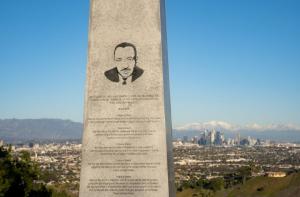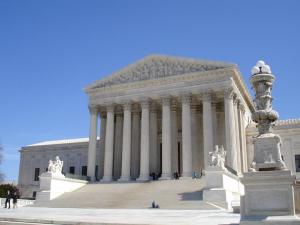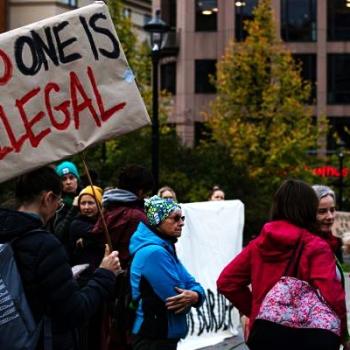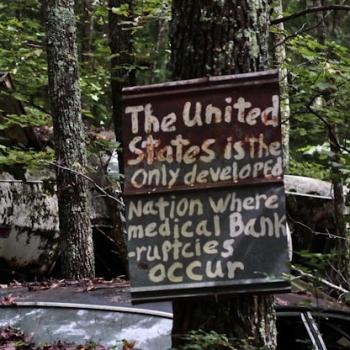Reading about or watching the news these days can overwhelm and frustrate me. Nevertheless, the unlikely duo of Dr. Martin Luther King, Jr. and Ted Lasso can help me out. Dr. King reminds me that light drives out darkness.
Do you ever ask yourself these types of questions about politics in the United States?
- What are people thinking? Do they think at all?
- How can Americans believe [that]?
- Why do voters focus so much on [this person]?
- Are people really aware of what is going on?
My response is bewilderment, fear, fatigue, and discouragement. I find my mind filled with outrage at some of the statements made by politicians and events that occur.
I recently revisited, however, these words of Dr. Martin Luther King, Jr. from chapter 5 of his book, Strength to Love, that challenge my negative response to some of the news.
“Darkness cannot drive out darkness: only light can do that. Hate cannot drive out hate: only love can do that.” (p. 47)

Darkness and Light, Hate and Love
Some of my fellow citizens view issues very differently. They perceive topics that seem dark to me as light. They think that some positions are loving although I see hating. This statement from the show, Ted Lasso has offered one path as I try to come closer to what Dr. King says about love and hate: “Be curious. Not judgmental.” (Note that on the show, Ted Lasso misattributes this statement to poet Walt Whitman.)
To become more loving, I need to open my mind and learn more about an issue. I cannot always personally interview people. I hope it may make it easier to love them if I can understand their reasoning.
The Supreme Court Ruled for the Colorado Woman Who Wanted to Sell Wedding Websites to Heterosexual Couples Only
This year, the U.S. Supreme Court ruled that a woman could create wedding websites in Colorado and exclude homosexual couples. I was concerned. My thought initially had been, since this was a theoretical business, she should make money another way if she felt that she could not serve the entire community.
Though I do not have a legal background, I tried the curious (as opposed to judgmental) approach by reading opinions from 303 Creative LLC et al, Petitioners v. Aubrey Elenis, et al. “303 Creative LLC” is Lorie Smith’s website business. Aubrey Elenis is the Director of the Colorado Civil Rights Division (CCRD). This quote comes from the CCRD website.
It would be a discriminatory action for a place of public accommodation, directly or indirectly, to refuse, withhold from, or deny to an individual or a group the full and equal enjoyment of the goods, services, facilities, privileges, advantages, of the public accommodation based on that person or groups’ protected class. Places of public accommodation are also prohibited from publishing, circulating, issuing, displaying, posting, or mailing any discriminatory advertisement.
Ms. Smith worried that the Colorado Anti-Discrimination Act (CADA) would force her to make wedding websites for homosexual marriages. She believes that only marriages between a man and a woman are true marriages.
Associate Justice Neil Gorsuch’s Opinion, the Majority Opinion of the Court (with five other justices)
Ms. Smith claimed that she puts much of her own artistic expression into websites. Because of this, the First Amendment’s freedom of speech should exempt her from CADA’s requirement to serve every individual or group. In two prior lawsuits, the court had not agreed with Ms. Smith which is why her lawsuit was before the Supreme Court.
The First Amendment of the U.S. Constitution. Congress shall make no law respecting an establishment of religion or prohibiting the free exercise. [This amendment] protects freedom of speech, the press, assembly, and the right to petition the Government for a redress of grievances.
Associate Justice Gorsuch and his fellow justices ruled that Smith’s creative websites are her own “pure speech.” To compel Smith to create websites against her beliefs would be like the government forcing speechwriters, artists to say and create with ideas that are at odds with their own principles. (Majority Opinion, p. 6)

Associate Justice Sonia Sotomayor, the Dissenting Opinion (With Two Other Justices)
The dissenting justices thought that the Majority used the wrong approach to their decision. Associate Justice Sotomayor said that disliked that “the Court, for the first time in history, grants a business open to the public a constitutional right to refuse to serve members of a protective class.” (Dissent, p. 1) The Supreme Court allowed the wedding website to post language like this: “No wedding websites will be sold if they will be used for gay marriages.”
Part of CADA, the Communications Clause, “makes it unlawful to advertise that services ‘will be refused, withheld from, or denied,’ or that an individual is ‘unwelcome’ at a place of public accommodation, based on the same protected traits.” This ruling, therefore, allows “status-based discrimination.” (Dissent, p. 4)
A business can limit its services. Sotomayor says that Smith could offer only websites with biblical quotations supporting marriage between a woman and a man. The statement that a certain class of individuals (same-sex partners) would not be served is what violates CADA. Sotomayor believes that the court should have focused on ways that Smith could have communicated her mission and beliefs some other way rather than saying she was not serving a protected group. (Dissent, p.27)
My Reflections
I learned several things from my curiosity rather than judgment approach to this case.
- A quick assessment of a Supreme Court ruling is likely inaccurate because opinions rest on years of precedent or prior rulings. Both Associate Justices Gorsuch and Sotomayor referenced many of the same cases but in different ways.
- “Discrimination” is a complex issue. Companies do not need to serve everyone; they can target one group. A company selling t-shirts with Christian messages, for example, focuses on Christian buyers, though a non-Christian could purchase a Christian shirt for a friend. What a company cannot do, until this ruling, is post that the company does not serve non-Christians a person’s religion puts them in a protected group. For example, a non-Christian cannot claim that the company descriminates unless it claims to be making religious t-shirts with exceptions.
- I wonder why Ms. Smith did not set up a separate business, perhaps calling it “Websites for Christian Marriages.” Was she concerned that she would lose revenue from non-Christian heterosexual couples? She does not seem to find issues with marriages aside from homosexual marriages.
- I thought that this exercise in curiosity was helpful. So often ethical issues are reduced to simplistic “pros” and “cons”; the human experience is much more complex.
I believe that I have a much better sense of why the court ruled as it did and why some justices objected to the outcome. My initial snap judgment was inaccurate. While the cases does deal with gay and lesbian weddings, the case focuses moreso on public commerce, discrimination, freedom of speech and protected classes of people. Associate Justice Sotomayor was more convincing in her arguments in my opinion.
I plan to try the curiosity approach to another issue that concerns me. Stay tune for other examples of ways that light drives out darkness.













